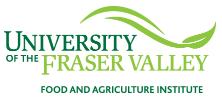The Social Implications of Agri-genomics: Ensuring a Just Transition to Climate-resilient Agricultural and Food Systems in Canada research project studies how new food production technologies that use agri-genomics can help economies grow, while also making progress toward social justice and sustainability goals. The research involves a comprehensive literature review, a nation-wide survey, scenario modelling, and case studies in vertical agriculture, cellular agriculture, and alternative proteins. The research explores ways of ensuring that social justice considerations are incorporated into efforts to use these new technologies for developing sustainable and resilient food systems. The research findings will be used to create tools that inspire the wider agri-genomic community to prioritize social justice as Canada’s food system adopts these technologies.
Visit the Project's Main Website Visit the Project's Genome Canada Webpage

Picture created using Bing Image Creator.
Click the button below to open an interactive map displaying the outcomes of a research effort that modelled future agricultural suitability under different climate change scenarios. The model outcomes are displayed using the Agrilyze map-based platform. When first accessing the map, click the data layers icon above the left panel to get started, and then expand the UFV Climate Predictions category to explore the data. Select and expand a climate scenario category to see the model outcomes for a particular climate future, and the expand the Crops category to find and display the data layers for future agricultural suitability for different crops. Use the time slider at the bottom of the screen to see the data for a particular year between 2020 to 2100), and expand the Legend on the right side of the screen to see the agricultural suitability values, from 0 (not suitable) to 1 (most suitable). More information on the research project can be found in this report.
Farming futures in a changing climate: Spatial shifts in agricultural suitability across British Columbia under multiple climate change scenarios is a report on a study that spatially models and assesses the future suitability of agricultural land for field-grown crops in the province of British Columbia, Canada, under different climate change scenarios. Insights from this modelling exercise can be used to guide strategic land use planning, investment prioritization, and climate change adaptation strategies.
Intersection of agri-genomics and agriculture 5.0 technologies: Role for life cycle assessment is a report that provides a backgrounder and overview of life cycle assessment (LCA) methodology within mushroom cultivation, cellular agriculture, and vertical farming production systems, highlighting considerations for agri-genomics applications. It also provides recommendations for integrating LCA thinking into accessible decision-support tools to evaluate novel agri-food technologies.
Innovation Positioning Assessment on Modelling Tools at the Intersection of Agriculture, Policy, Sustainability and Technology Adoption is a report that provides an innovation assessment on the modelling tools developed through this research project, namely those that simulate the impacts of climate change and policy scenarios on agricultural technology adoption and sustainability outcomes. The report offers broad insights that can support the commercialization of both modelling tools.
Below is an interactive visualization of a hypothetical "agritech park" in the municipality of Langford, British Columbia, Canada. The visualization tool is used in this research examine how people may react to having emerging food production approaches, such as vertical farming and cellular agriculture, developed and established in their community. The visualization features three scenarios:
- An agritech park with indoor food production facilities for vertical agriculture, mushroom-based proteins, and cultivated fish
- An agritech park with indoor food production facilities and infrastructure for public visitors (e.g., benches, tables, farm/food stands)
- An agritech park with indoor food production facilities, infrastructure for public visitors, and soil-based agriculture (e.g., urban farms, community gardens)
After the visualization has loaded, click on the full-screen expansion button in the bottom-right corner (i.e., the blue button with two arrows) to start using the tool. When in the visualized scenarios, use the WASD keys to walk and the mouse to look around (hold down the right-click button when stopped to look around). Click H to make the mouse cursor appear so that you can click the menu items and explore the scenarios. Use the buttons below to download a virtual reality version of the tool that can be experiences using a Meta Quest headset.
 |
 |
This project is supported by funding from the Genome Canada's Climate-Smart Agriculture and Food Systems initiative.

